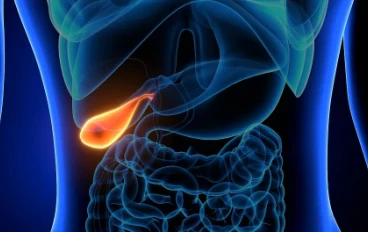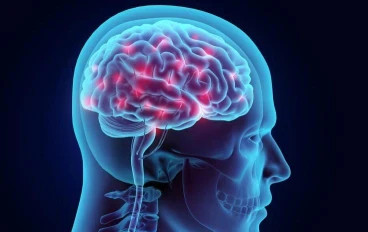
Malnutrition: Recognizing and Treating This Serious Condition
Malnutrition: Recognizing and Treating This Serious Condition
Malnutrition is a serious condition that affects millions of people worldwide, impacting their overall health and well-being.
It occurs when the body does not receive the necessary nutrients to function properly, leading to a range of health problems.

Recognizing and treating malnutrition is crucial to prevent long-term damage and improve overall health outcomes.
Adequate nutrition is essential for maintaining healthy bodily functions, and addressing malnutrition can significantly enhance quality of life.
Key Takeaways
- Malnutrition is a serious condition that affects overall health.
- Adequate nutrition is essential for maintaining healthy bodily functions.
- Recognizing and treating malnutrition is crucial for improving health outcomes.
- Nutrition plays a vital role in preventing long-term health damage.
- Addressing malnutrition can significantly enhance quality of life.
Understanding Malnutrition: Causes and Risk Factors
Understanding the multifaceted nature of malnutrition is crucial for addressing its causes and mitigating its risk factors. Malnutrition is not just about lack of food; it's a complex health issue influenced by various factors including socioeconomic status, healthcare access, and underlying health conditions. This complexity necessitates a comprehensive approach to prevention and treatment.
Definition and Types of Malnutrition
Malnutrition encompasses both undernutrition and overnutrition. Undernutrition occurs when the body does not receive enough calories or essential nutrients, while overnutrition happens when there's an excessive intake of calories or nutrients, leading to conditions like obesity. There are several types of malnutrition, including stunting, wasting, and micronutrient deficiencies, each with distinct causes and consequences.
https://www.youtube.com/watch?v=jEd91r___5Y
Who Is Most Vulnerable to Malnutrition
Certain populations are more susceptible to malnutrition due to various risk factors. These include children under five, pregnant and lactating women, the elderly, and individuals with chronic illnesses or those undergoing certain medical treatments. Economic instability, lack of access to nutritious food, and inadequate healthcare further exacerbate the risk of malnutrition in these groups.
Key risk factors also include poverty, food insecurity, and poor dietary practices. Addressing these factors is critical to preventing malnutrition and ensuring that vulnerable populations receive the necessary nutritional support.
Recognizing the Warning Signs of Malnutrition
Recognizing the warning signs of malnutrition is essential for timely intervention. Malnutrition can affect anyone, but certain groups are more vulnerable, including the elderly, children, and those with chronic illnesses.
Physical Symptoms to Watch For
Physical symptoms of malnutrition include unintentional weight loss, fatigue, and poor wound healing. Other signs may be hair loss, dry skin, and swelling in the feet and ankles. These symptoms can indicate a lack of essential nutrients.

Behavioral and Cognitive Changes
Malnutrition can also lead to behavioral and cognitive changes, such as irritability, confusion, and decreased concentration. In severe cases, it can cause memory loss and mood swings. These changes can be subtle at first but may become more pronounced if malnutrition is not addressed.
Early detection of these warning signs can significantly improve health outcomes. If you or someone you know is experiencing these symptoms, it's crucial to consult a healthcare professional.
Effective Treatment Options for Malnutrition
Treating malnutrition effectively requires a comprehensive approach that addresses both the physical and nutritional needs of the individual. Malnutrition can have severe consequences on health, making timely and appropriate treatment crucial.
Medical Interventions and When to Seek Help
Medical interventions play a critical role in treating malnutrition. Healthcare professionals may recommend hospitalization in severe cases to provide the necessary care and monitoring. It's essential to seek medical help if symptoms persist or worsen over time.
Dietary Strategies and Nutritional Support
A well-balanced diet rich in essential nutrients is vital for recovery from malnutrition. Dietary strategies may include the use of nutritional supplements to ensure adequate intake of vitamins and minerals. Nutritional support tailored to the individual's needs can significantly enhance the recovery process.
Long-term Recovery and Monitoring
Long-term recovery from malnutrition requires ongoing monitoring and support. Regular check-ups with healthcare providers can help track progress and make necessary adjustments to the treatment plan. As "Nutrition is the key to recovery", maintaining a healthy diet is crucial for sustained health.

Conclusion: Taking Action Against Malnutrition
Malnutrition is a serious condition that affects millions of people worldwide, compromising overall health and well-being. Recognizing the warning signs and understanding the causes and risk factors are crucial steps in addressing this issue. By being proactive about nutritional health, individuals can take the first step towards preventing and treating malnutrition.
Effective treatment options, including medical interventions and dietary strategies, can significantly improve health outcomes for those affected by malnutrition. It is essential to seek help when needed and to support loved ones in their recovery journey. By working together, we can make a significant impact on the health and well-being of individuals and communities.
Taking action against malnutrition requires a comprehensive approach that involves education, awareness, and community support. By prioritizing nutritional health and addressing the root causes of malnutrition, we can create a healthier and more resilient society.
FAQ
What are the common causes of malnutrition?
Malnutrition can result from a variety of factors, including inadequate diet, certain medical conditions like cancer or HIV/AIDS, and socioeconomic factors such as poverty. Elderly individuals, children, and those with chronic illnesses are particularly vulnerable.
How is malnutrition diagnosed?
Diagnosis typically involves a combination of physical examination, medical history, and nutritional assessments. Healthcare providers may use tools like body mass index (BMI), weight loss tracking, and laboratory tests to evaluate nutritional status.
What are the signs and symptoms of malnutrition?
Common signs include weight loss, fatigue, poor wound healing, and decreased immune function. Behavioral and cognitive changes, such as irritability and confusion, can also occur. Early recognition is crucial for effective intervention.
Can malnutrition be treated, and if so, how?
Yes, malnutrition can be treated. Treatment often involves a combination of medical interventions, dietary adjustments, and nutritional support. This may include supplements, a balanced diet tailored to the individual's needs, and monitoring by healthcare professionals.
How can I prevent malnutrition?
Preventing malnutrition involves maintaining a balanced diet, being aware of the risk factors, and seeking medical attention if symptoms arise. For vulnerable populations, such as the elderly or those with chronic conditions, regular nutritional assessments are recommended.
Are there any specific dietary recommendations for individuals recovering from malnutrition?
Individuals recovering from malnutrition benefit from a nutrient-rich diet that is often high in calories and protein. The specific dietary needs can vary based on the individual's condition and should be determined in consultation with a healthcare provider or a registered dietitian.






























